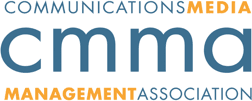It’s funny how ideas that seem unrelated, have a way of connecting themselves and lead you to something new and different. This happened to me in 2011 when I heard a presentation by Don Tapscott (Author of Wikinomics: How Mass Collaboration Changes Everything, and Grown Up Digital: How the Net Generation is Changing Your World and others). Don pointed out how much he was learning about the digital landscape from what he referred to as his “young mentors”.
Coincidentally, I was involved in mentoring a young college student at the time. Of course, I viewed that mentoring relationship as one where I would share my sage wisdom and stunning insights based on my vast experience in business and the communications world with my mentee, Nick. But, Don’s presentation made me approach my own mentoring experience in a new way.
As members of CMMA, chances are you are leading a team of people much younger than you. And the communications you and your team are producing are likely being consumed by many people your children’s age or younger. Are you prepared to know what they’re thinking? Do you know the best ways to get them to pay attention? To motivate them? To inspire them? If not, you likely need a 20 year old mentor yourself.
How It Works
Step one of course is to find a mentor. It could be someone on your staff, or another younger employee in your company. Or, take a look at all of those resumes of young people looking for jobs and internships you undoubtedly have sitting somewhere. There’s no shortage of young people today eager to tap into your knowledge and your network of connections.
Once you meet with your potential mentor, lay out the groundwork. The idea is a mutual mentoring experience where you’ll trade your knowledge for his or hers. But, the idea is you are mentoring each other.
The Benefits
What I have learned from Nick – Nick provided me with a clearer understanding of the channels he and his peers rely on for information. It’s clear that he uses email to communicate with old people like me, but, communication with peers is always via digital domains (Text, Twitter, Facebook, Google Hangouts, etc.). Nick doesn’t have an iPhone – he’s all Google and Android. So are his peers. Nick does not have cable television – he and his peers only watch television online. Nick is hungry for learning the tools of the trade for producing video. But, his preference is to use them to produce video in a more youthful, free-form style. Nick’s work ethic is extremely strong. He is willing to put forth huge efforts and time commitments for a task, especially when he can see the value of the task. This runs contrary to the common myth that young people are unmotivated, lazy, disenfranchised and plugged into video games 24X7.
Most importantly, I learned that the youthful enthusiasm and excitement for what we do is essential to being successful. Meeting with Nick put me back in touch with what attracted me to video and communications to begin with. It reminded me how important it is to treat the technology we work with and the communications we deliver as evolutionary rather than a static art where we keep re-using the same channels, methods and processes that served us well in the past. Creating by definition is something that builds toward the future. When you only tap into what worked in the past – you are re-creating. Nick and his peers are all about creating new things and we should follow their example.
What Nick learned – By way of disclosure, Nick sent me his list of what he has gained from our mentoring collaboration. I’ll paraphrase it here.
Nick says he learned a few lessons about leadership and about trends in the industry. Working with our team, I think Nick saw firsthand, that leadership is an essential element since everything we do is collaborative and heavily reliant on teamwork. I think he realized that everyone on the team has leadership responsibility at some point during every project. So leadership is every bit as important as other skills: like writing, producing, editing, etc. In Nick’s words: “Having been an intern in the department, I’ve had the privilege to learn the importance of a forward-thinking leadership style.”
Nick says he also learned to adopt a forward-thinking mindset, to evaluate how a production style or technical element might be used in the future. He learned that it’s important to not only keep up-to-date on technology changes in the industry, but also to keep current on processes to make sure they have longevity. “In essence, I learned to put more work on the front-end to ensure higher-quality productions that meet timeline requirements.
I think Nick also picked up on my personal bias toward avoiding the temptation to adopt new technology too quickly. Again, in Nick’s words: “Through our discussions, I learned to think about the relationship of technology adaptation and client value – keeping away from being on the ‘bleeding edge’, and understanding what that element can realistically bring to a production.”
Nick also realized the important role he played in mentoring me. “Bill is always interested in television content and technology that I keep up with, and I let him know of any trends that I notice. These observations can be as simple as the move to ‘cleaner’ graphics in productions, or as complex as technology interests that may have video applications, but aren’t currently being used as such.”
Lastly, since Nick just recently started his first job at a Community College in the Washington DC area, I think he realized the benefit of having a solid reference that could enthusiastically endorse him when he applied for jobs. We all know what it’s like to be asked to provide a reference for someone we are only vaguely familiar with. But, as a result of the collaborative mentoring experience with Nick, I was chomping at the bit to recommend him when potential employers inquired. In fact, my only hesitancy was the feeling of wishing we could hire Nick to work here if we only had a position open. Again Nick: “I understand the intrinsic value of having a mentor for a career, and deeply appreciate the collaboration that brings it to a much higher level for me.”
Conclusion
So what are you waiting for? I hope this testimonial will motivate you to start working with a 20 year old mentor today. In spite of encouraging signs in the employment market today, there are still a lot of really talented and innovative young people out there looking for a path to the future. By offering a collaborative mentoring opportunity, you can not only help them, but, you just might wind up finding like it did, that you gain the ultimate benefits. You’ll gain new insights into the staff you manage and the people who consume the communications your team produces. You will also re-discover the zest of enthusiasm for what we all do. And you might just hear about the next “House of Cards” or Arcade Fire long before they become mainstream, household names.
Article contributed by Bill Marriott with SAS and CMMA Member

